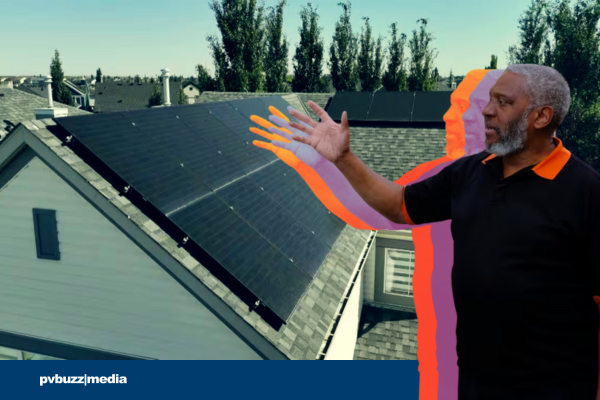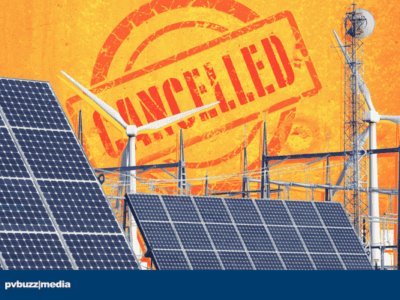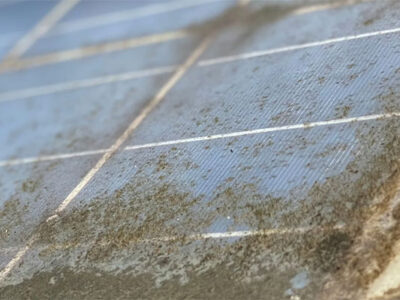- A Calgary homeowner paid triple the typical rate for a solar system after being approached by door-to-door sales reps.
- Canada lacks standardized licensing for solar sales teams and installers, creating room for aggressive and misleading sales practices.
- Industry insiders warn that unchecked tactics are undermining public trust in solar at a critical time for energy transition.
Editor’s note: Brightworks Energy is a client of PVBUZZ Media. The views expressed in this article are informed by reporting and industry insight, and reflect our ongoing commitment to highlighting critical issues shaping Canada’s clean energy transition.
Jay Hector thought he was making a smart investment when he agreed to install solar panels on his Calgary home. Instead, he ended up with a $48,000 contract—more than triple the market average for a system of its size.
The deal was brokered not through a quote request or online research, but through two visits from door-to-door salespeople. The sales pitch was persuasive: rising electricity rates, government incentives, and the promise of long-term savings. But Hector, like many others, would only learn the true cost after it was too late.
His story—first reported by CBC News—has become a flashpoint in a growing conversation around the sales practices shaping Canada’s solar boom.
No longer isolated

Door-to-door is a canvassing technique that is generally used for sales, marketing, advertising, evangelism or campaigning, in which the person or persons walk from the door of one house to the door of another, trying to sell or advertise a product or service to the general public or gather information.
Door-to-door solar sales have become increasingly common across the country, driven by the surge in interest in residential solar and the availability of government rebates. But these tactics are drawing scrutiny amid rising complaints from homeowners, watchdog agencies, and industry veterans.
There is a reported uptick in the number of complaints related to aggressive or misleading sales approaches. The Better Business Bureau has echoed these concerns, citing a growing number of cases involving exaggerated savings claims, misleading financing structures, and opaque contract terms.
While Alberta has seen some of the most visible cases, industry insiders say the issue isn’t regional.
“This is a national problem,” said Bobby MacCannell, CEO of Brightworks Energy, a solar installer based in Ontario. “We’re seeing companies aggressively hiring commission-only salespeople to knock on doors with inflated quotes and vague promises. The math rarely checks out. But the pitch works—because it’s designed to.”
Behind the pitch
At the heart of the problem is an often-overlooked reality: Canada lacks standardized licensing requirements for solar sales teams or installers. In contrast to jurisdictions like California—where specialized solar contractor licenses are mandatory—any Canadian electrician can legally install solar panels, regardless of specific training or experience.
This regulatory gap has allowed questionable business models to flourish, particularly in provinces where demand is outpacing qualified supply. Some salespeople are independent contractors paid solely on commission, with little accountability once the deal is signed.
“This isn’t just about one company or one bad actor,” said MacCannell. “It’s about how we’ve structured the incentive system. If your paycheck depends on closing the deal, the pressure to oversell is built in.”
Can the market self-correct?

Bobby MacCannell, Founder at Brightworks Energy Inc.
Some in the industry have adopted internal safeguards.
MacCannell said he prefers companies employ salaried door-to-door sales staff, not only commission-based agents, to avoid conflicts of interest. Others rely on referral networks and online reviews to build trust. But those efforts aren’t universal, and without oversight, the burden continues to fall on the consumer.
Experts advise homeowners to treat solar like any major home renovation: get multiple quotes, check credentials, and take time to verify financing terms. But even that isn’t always enough in the face of polished sales tactics at the front door.
“If you’ve been approached with a ‘government-type limited time offer,’ that should be a red flag,” MacCannell added. “Good solar companies will be truthful about available government incentives and deadlines, not just simply rush you.”
Trust as collateral damage
The broader risk is reputational. As more stories like Hector’s surface, public trust in solar as a viable investment could falter—ironic, given that residential solar is central to many provinces’ climate and energy goals.
Regulatory discussions are beginning to surface in policy circles, but for now, industry groups remain largely self-policed.
And for homeowners like Hector, the lesson is clear but costly: not all solar pitches are created equal—and the fine print can cast a long shadow on what should be a bright idea.














Comments